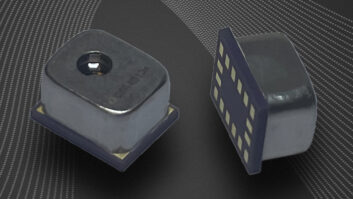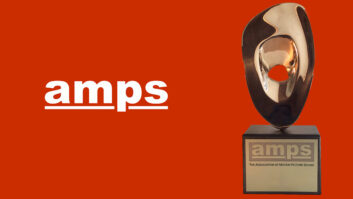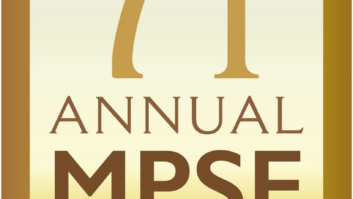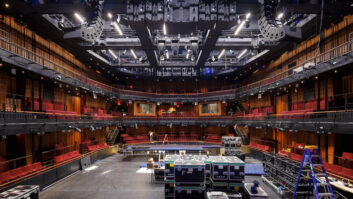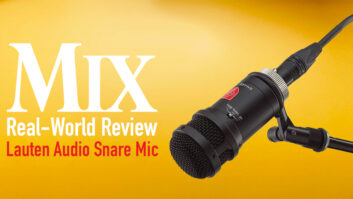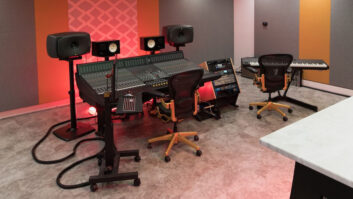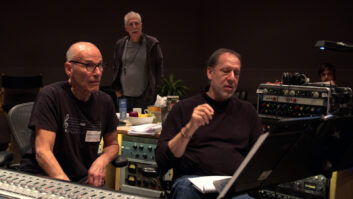by Christopher Walsh
New York, NY (November 15, 2007)–At the 123rd Audio Engineering Society Convention, executives of BanPiracy, a company formed to fight intellectual property theft in the audio software industry and owned by the shareholders of Waves Audio Ltd., pledged to sue recording facilities which they determine to be in possession of unauthorized Waves software. The group also stated that several dozen recording studios, mostly in New York, Los Angeles and South Florida, are facing lawsuits.
True to that pledge, the organization confirmed to Pro Sound News that Waves Audio Ltd., its sole client, filed lawsuits in October against 11 recording studios in the New York City area.
Waves Audio, according to BanPiracy’s November 5 announcement, alleges in separate complaints filed in New York State Supreme Court that “the recording studios have used Waves software without having first obtained a license to do so, which is a violation of Waves rights and proprietary interest.”
Pro Sound News attempted contact with each of the targeted studios. Officials at a majority of the facilities responding to our queries claim their studios to be registered owners of Waves software products.
New York-based studios contacted by Omaha-based collection agency Allied National and subsequently receiving a notice of Summons and Complaint include Output Recording Studio, Jambox, Innovative Music, Mambo Recording Studios, M&I Recording, Explode Records, Skyline Recording Studio, Sweet Sound Studios, Uptime, B Reel Recording Studio and the Cutting Room.
According to Michelle Hughes, an attorney from the New York-based Hughes Law Firm who is representing several studios targeted by BanPiracy and Allied National, “The [11] suits filed on behalf of Waves Audio, Ltd. range between $71,000 and $300,800, all totaling over $1.7 million. Their suits consist of four causes of actions. They are suing for the cost of the allegedly stolen software, the same amount for unauthorized conversion, $2,000 for the cost of their ‘investigation’ to determine if the studio had a proper license, and punitive damages in the amount of 10 times the cost of the software.
“In addition,” Hughes adds, “they are seeking a permanent injunction enjoining the studios from using any Waves products, and an order directing the studio to remove all Waves products from their systems. They don’t seem to be concerned with whether or not some Waves products were legitimately purchased. They make no distinction in their complaint.”
Jeffrey Maidenbaum of Maidenbaum & Associates, who is representing Waves Audio, responds: “The plaintiff in the referenced matter is, pursuant to the complaint, seeking that the defendant remove unauthorized Waves products from their systems and pay for what they have used. In simple terms, if a studio owner has an authorized version of Waves on one rig and an unauthorized version of Waves on another rig in the same studio, the plaintiff wants only the unauthorized version removed, or, alternatively, a license purchased.”
Most of the owners of targeted studios contacted by Pro Sound News wish to remain anonymous while the matter remains unresolved. But several spoke about BanPiracy, Waves and Allied National, angered by demands to settle the alleged infringements with sizable fines and what they consider deceptive visits from phony prospective clients, misdirected assessments of culpability, and ignorance of contemporary studio practices.
Many attendees of the contentious October 7 press conference at the Javits Convention Center took a similarly skeptical view of BanPiracy’s announcements. While none present endorsed the use of unauthorized, or “cracked,” software, several expressed irritation and amazement that a commercial facility would be liable for a client’s actions with regard to software installed on facility-owned equipment during sessions.
Yet Ban Piracy founder/COO Tomer Elbaz (a former executive of Waves Audio) and CEO Michael David (also managing director of Allied National) were adamant in their assertion that commercial facilities can and should be legally responsible and prosecuted for any unauthorized software discovered on their DAWs. Elbaz “has been engaged in a worldwide gathering of information used against recording studios involved in litigation with Ban Piracy,” according to a statement distributed at the AES press conference. “To the question of the liability of studio owners for something that goes on in their studios without their knowledge,” Elbaz tells Pro Sound News, “we at Ban Piracy make every effort to verify that the studio owner was involved in copyright infringement before we begin the legal action. At the actual meeting, when the presenter shows you the plug-ins and says ‘Oh my God, I’ve got software on my rig, I’m going to remove it,’ we won’t do anything. But when he realizes that this is cracked software–and both of us know, because there are millions of ways to verify–and doesn’t say anything about it, he is responsible.”
Not so fast, say studio owners. While BanPiracy aims directly at the criminal and ethical offenses represented by piracy, its black-and-white assessment of said offenses clash with the real world’s shades of gray, studio owners and managers assert.
Elbaz noted the hypocrisy of a hypothetical recording engineer using unauthorized software while decrying lost sales due to illegitimate downloading or CD burning. He also noted that studios that do pay for audio software are unfairly disadvantaged, while pro audio dealers are likewise victims of piracy.
“I’m proud to be part of an organization that strives to eliminate audio software piracy in the for-profit recording industry,” David said at the press conference. “The use of unauthorized or ‘cracked’ software in the recording of music isn’t fair, it isn’t right, and it isn’t legal. Ban Piracy intends to stop the abuse.”
During the course of visits to recording studios, Elbaz said, “I was shocked to discover how many recording studios in all these different parts of the world have so little respect for the rights of those who create this incredible software used in making music.”
David said he is supervising litigation efforts in North America involving recording studios. “Litigation is only a last resort,” he says in the November 5 statement sent to Pro Sound News, “and we still hope to reach an amicable resolution between the plaintiff Waves Audio and the various defendants. However, we are prepared to litigate these infringements of the Waves copyrights to the fullest extent of applicable New York state laws.”
Ban Piracy executives will not comment on the group’s methods of identifying unauthorized software users, but news of its efforts quickly spread through the pro audio community. Discussion threads grew on online message boards, many furiously accusing Ban Piracy of unethical tactics including the use of agents feigning interest in booking a studio while demanding to inspect its software.
Opinion on message boards runs to both extremes, however, with many posts unequivocally supportive of Ban Piracy’s goals and tactics. Likewise, all studio officials contacted by Pro Sound News condemn software piracy.
J.R. Guerrieri of Uptime Studios says he isn’t hiding anything. As a paid and registered owner of Waves’ Gold Bundle, he was perplexed by the claim that Uptime possesses two Waves Diamond Bundles. “We only have one Mac,” he says. “We have a PC for the office. I’m saying there couldn’t have been two of anything, because we only have one computer.
“Freelance engineers will rent our room and bring their own gear,” he explains, “just like they could preamps, or anything else that is a normal practice in the studio business. I have no way of knowing what [a client] has on their computer: it’s their computer!”
Guerrieri responded to a letter from Allied National by sending his Gold Bundle registration form with license and serial number. “Nobody called me back,” he states. “The next thing I knew, I got a summons.”
“We have a lot of people that come and go in and out of the studio with their own systems,” says another studio owner, who wishes to remain anonymous. “I’m definitely not guilty of installing cracks.
“Over the years,” this studio owner adds, “I’ve had clients that come in and use their own computers, people that come in with their own Mac towers, their own systems, their own iLoks. I don’t know who came in and what computer [BanPiracy was] looking at. I don’t know whose session was in, [or] what plug-ins were being used.
“As far as I’m concerned,” the owner adds, referring to BanPiracy, ” they have a lot of prove to me, as far as when and how they came in here and who was working on the sessions at the time. I don’t have employees here; I’ve got independent contractors. If somebody happened to come in to see the studio one day, they didn’t speak to me. That’s another thing I need to find out: whom did they talk to that misrepresented [the studio]? It wasn’t me.”
Like many targeted by Ban Piracy, this studio owner claims to be a paid and registered owner of Waves software, though he says he isn’t currently using the $5,000 package as he was unable to obtain new authorization codes for reinstallation after a motherboard crash.
“The plaintiff is only concerned with studio owners who are using unauthorized versions of Waves software,” says Maidenbaum, who adds that he cannot comment without knowing the studio owner’s identity and client history.
Hughes, the attorney representing several studios, says that, “Each individual case is different, but generally my advice to clients has been to ignore the correspondence received by Allied National unless they’re willing to retain an attorney to handle the matter. Despite their claims otherwise, Allied and BanPiracy have not been very cooperative with their settlement negotiations. The time to certainly seek out legal representation is when a Summons and Complaint is received.”
“The bottom line,” Maidenbaum replies, “is that BanPiracy and its client Waves Audio has from the beginning reached out to all potential defendants prior to litigation to settle claims without a lawsuit. Also, as the lawyer for the plaintiff, I’m willing to listen to anybody who wants to engage in settlement negotiations. In fact, we are in ongoing discussions with various parties in an effort to amicably settle the plaintiff’s claims.”
Several other commercial studios contacted by Pro Sound News reported a call and/or visit from mysterious would-be clients. In one case, Kit Rebhun, studio manager of Glenwood Place Studios in Burbank, CA, ejected the visitors based on what she considered inappropriate requests and the suspicion that they were casing the premises. While the visitors’ identity is unknown, Rebhun was surprised at their insistence that, rather than reviewing a list of the facility’s plug-ins, she power up a computer and show them the software.
Such investigative tactics “are obnoxious, on the one hand,” says Trevor Fletcher of Criteria Recording in Miami, who cites a vague recollection of a telephone inquiry regarding the facility’s plug-ins. “On the other, I understand this is proprietary information. Somebody’s got to get paid for developing this stuff. It is akin to downloading music for free, where all of us slave away day and night to make this stuff and then there’s no compensation, which is a never-ending downward spiral in terms of the economy of the thing.”
While audio professionals contacted by Pro Sound News unanimously decry piracy, studios point to BanPiracy’s actions as yet another burden on small businesses already struggling to stay afloat in a challenging climate. “To be honest,” adds Guerrieri, unauthorized software loaded onto Uptime’s computer “is the least of my problems. Trying to pay rent,” he adds, is a more pressing concern. “I know that what’s supposed to be on [the computer] is what we paid for, just like we have Windows and Pro Tools.”
“If piracy is going on with them, I understand why they’re [angry] about it,” the anonymous studio owner says. “But I think they should find out a bit more about the use of this stuff and who’s actually doing it. For me to have to spend the money to hire a litigator just to prove that I had a variety of different engineers and producers working here in the last six months, and all of them can do whatever they want to my computer for their session–that just sucks. I would have preferred if somebody came in and said, ‘We need to speak to the owner,’ and let me explain what I have and offer at the studio. Had they asked me if we have Waves, I would’ve said no.”
“These people think it’s very black and white, when it’s not,” adds Guerrieri. “They’re suing their customers. If I settle this thing, I’ll never buy a Waves product again. I don’t care what client wants it.”
Ban Piracy
www.banpiracy.com
